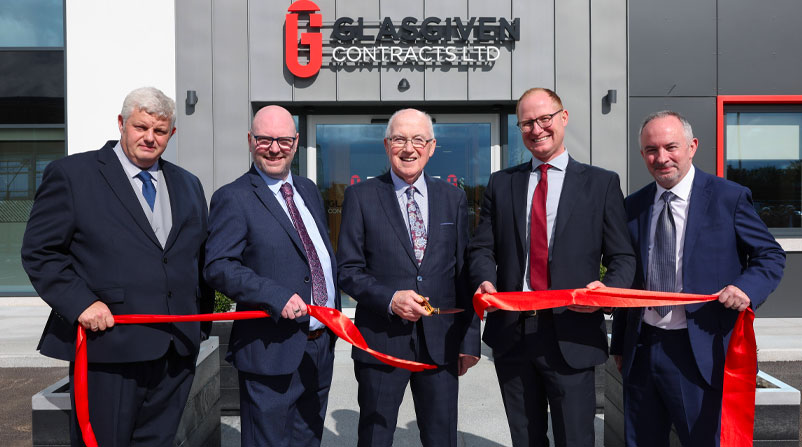By Tunir Biswas
Copyright yourstory

In the wake of COVID-19, the food and beverage (F&B) industry in India was left in near desolation across multiple avenues, from farmers making losses in millions of dollars to the disruption of the supply chain.
Around this time, Guru Shivaram, Amrit Hemdev, and Salman Sait—seasoned professionals across real estate, hospitality, and finance with over two decades of experience—realised that an alternate way to mitigate loss margins in the F&B sector would be through fractional ownership by a team of investors.
“Typically, what happens in an outlet is that once the talent (chefs, managers and staff—the face of the business) takes funds from an investor, they try to manage it themselves. While juggling building the project, liaising, and following all the compliances, they end up losing focus on what they had set out to do,” Shivaram says.
In 2021, in an effort to ensure the talent gets to do what they were supposed to without hassle, the trio co-founded Investorant, an investment platform that enables fractional ownership of curated F&B concepts.
“We enable talent to have their own spaces without any other stress such as raising funds, building the project, and others. They get creative freedom, the investors get absolute transparency on how their money is being spent,” CEO Shivaram tells YourStory.
Actualising fractional ownership in the F&B industry
While each property of the F&B investment platform is sponsored by multiple investors, Bengaluru-based Investorant retains the IP.
The first step when trying to set up a new establishment is real estate, Sait says. “We feel the real estate location is very important. Without that, the entire concept can fall apart. We are very opportunistic as well,” he says. The founders “keep discussing concepts and operatives but the moment we find a real estate location that aligns with a concept, we start putting together the operational plan”.
After the operational plan is finalised, the 8-member Bengaluru-based team freezes on a business plan and starts pitching to investors. “A typical project costs about Rs 2-4 crore with around 10-12 investors (mostly private investors) onboarded. We get designers and architects to plan the space, which takes about a month. From signing to opening takes anywhere between four to six months,” he says.
The F&B investment platform ensures it gets interested investors for each project. To do this consistently in the F&B sector, generally considered to be a space with thin profit margins, Investorant banks heavily on its transparent model.
“Our investors always have clarity on how a business is going. Our reporting structure is very robust, with everybody getting access to the sales report. We also do weekly reporting on how the business performed over the week, how the cash flew, and what went right and wrong,” Shivaram says. “We also provide daily snapshots of average sales per day.”
Kishore Reddy, one of the investors of Spirit Forward, says that the kind of talent the Investorant team acquired for a concept stood out for him. “More importantly, I appreciated the transparency throughout the funding process and the clear steps they outlined to ensure the project’s success,” he says.
Expansion and the differentiator
Investorant has established three “concepts” till now: Whisky Samba in Hyderabad (an extension of the one in Gurugram), Spirit Forward and Una Hacienda in Bengaluru. The CEO says all three establishments have been profitable from day one.
“Our industry has about an 80% failure rate. We are trying to cut it down by working with the right talent, allowing them to do what they do best and providing the right investment structure,” he says.
But he acknowledges that there will always be elements that are not in anyone’s control. “For instance, a road getting wiped out could be extremely harmful to even the top restaurant in the city. We always give this heads-up to our investors and they are usually quite understanding,” he says.
Expanding on ‘working with the right talent’, Sait speaks about Spirit Forward, a cocktail bar ranked as the 37th best Bar in Asia and the startup’s first IP, for which the team onboarded seasoned bar consultant Arijit Bose. For Una Hacienda, the team worked with veteran Cuban-American chef Jason Hudanish.
Sait says the F&B investment platform is looking to open three more establishments by the end of 2025. “We feel there is a lot of room in the Bengaluru market and we’d like to cover that fully. But we are also exploring spaces in Mumbai and Hyderabad,” he says.
He adds that the profit share percentage varies depending on the type of project, fundraise and operating structure. “We align ourselves such that we only make money when the outlet and investors do. We don’t charge raise fees, fitout or project management and keep low overheads in each project,” he shares.
With about 100 people employed across the three establishments, Investorant has raised and deployed a total of Rs 13 crore, including an investment of Rs 75 lakh from the founders’ pockets over two years.
“Last year, we made a revenue of Rs 25 crore, from only Whiskey Samba and Spirit Forward. With the addition of Una Hacienda this year, we are expecting our revenue to clock in at about Rs 40-45 crore,” Sait says.
Competing with hospitality companies like the Mumbai-based Hunger Inc. and Bengaluru-based VRO Hospitality, Sait believes Investorant separates itself due to its transparent business and funding models.
“The others create and establish IPs, but the funding is usually an internal phenomenon. Our idea is to democratise access to exciting F&B investments. And because of our model, Investorant is itself operationally profitable, allowing us to retain control over the business.”
(Edited by Affirunisa Kankudti)



